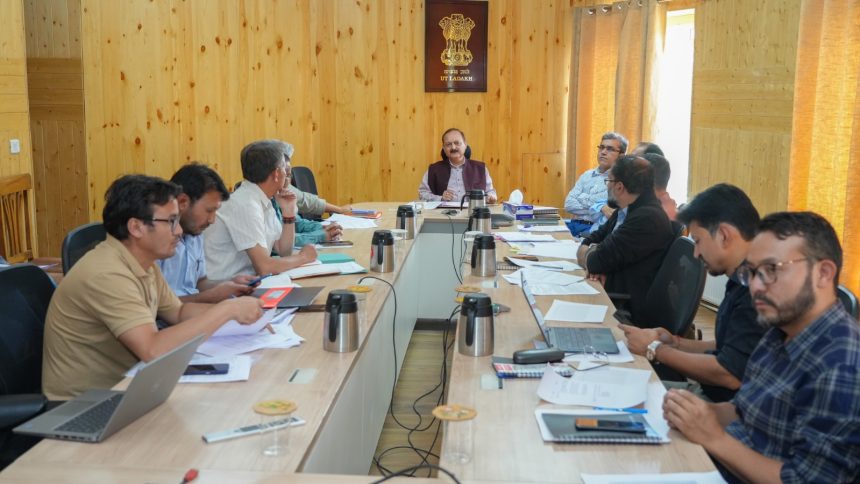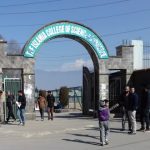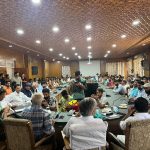Leh, Aug 16: Advisor Ladakh, Dr. Pawan Kotwal, reviewed the progress of important projects at the UT Secretariat, Leh. The meeting reviewed the status of solar rooftop installations on government buildings, various hydroelectric projects, progress on the State Dispatch Centre, construction of Leh and Kargil Houses at Dwarka, Delhi, and the construction of accommodations for officers at Leh.
It was informed during the meeting that the School Education Department under Samagra Shiksha has approved solar rooftop installations for 527 schools. Additionally, solar rooftop installations are also planned for 970 government buildings.
The meeting was further informed that the bidding process for the 50 MW Solar Power Project at Taru is at an advanced stage of evaluation. Regarding the hydro projects, it was noted that the Detailed Project Reports (DPRs) for four hydro projects, namely Mangdum Sangrah, Nimmo Chilling, Sankoo, and Igo Upshi, are in the final stages of submission to the Ministry of New and Renewable Energy (MNRE).
Regarding the 13 GW Mega Solar Park at Pang, it was informed that soil investigation is currently underway. A recent stakeholder meeting, including representatives from SECI, LAHDC Leh, and the UT Administration, was held at Pang on August 12, 2024. The local community has been informed and engaged regarding their concerns. Additionally, efforts to develop local skills are underway, with resource mapping and an online survey portal being prepared. The construction of pre-engineered buildings at Pang has also begun.
The Advisor emphasized that Administrative Secretaries should review the pace of execution of works being carried out by executing agencies of the Government of India, such as the Central Public Works Department and the Solar Energy Corporation of India.
The development of Chumathang Hot Water Springs and tourist facilities at Damsna, as well as the Gauri Kund Project, was also reviewed. The Advisor stressed that the concerned departments should restrict the use of cement and instead focus on using locally available stones.
Dr. Kotwal emphasized the importance of ensuring the optimal utilization of the limited working season and setting timelines for the timely completion of construction projects. He also highlighted the need to use locally produced materials to promote sustainability and preserve the unique cultural heritage of the region.








